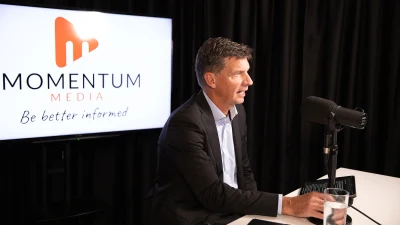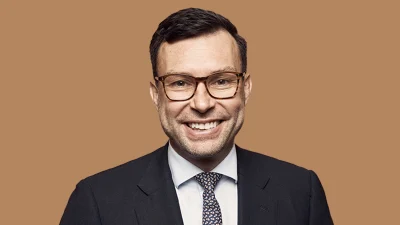May research round-up


PortfolioConstruction Forum asks the major research houses about their most recent projects and appointments.
Lonsec
- Hedged global equities have provided consistently stronger returns than unhedged over the past decade, according to Lonsec’s recent review of the effect of currency on portfolios. This was driven in large part by the depreciation of the US dollar versus the Australian dollar, although that relationship did not hold in the previous decade – in fact, it reversed. Given that Australian equities generally constitute a material component of a client’s equities portfolio, some unhedged global equity exposure makes sense from a diversification perspective.
- Fundamental global equity fund managers have beaten their quantitative manager peers in terms of outperformance consistency in recent times. Lonsec’s new outperformance study found that for periods to January 2011 which include data for 2007 and 2008, the average quantitative manager outperformed its benchmark in less than 50 per cent of months, while for more recent periods, outperformance has been greater than 50 per cent. By contrast, the average fundamental manager (those which rely on traditional investment analyst generated stock research) outperformed the benchmark in over 50 per cent of months, save for the most recent one-year period.
- Nicholas Yaxley has joined Lonsec’s equities research team to focus on researching listing fixed interest and hybrid securities. Yaxley was previously an analyst at Black Swan Capital Partners and a credit analyst with JP Morgan Asset Management.
Morningstar
- A report by Morningstar on the performance fees charged by large-cap Australian equity funds has revealed a lack of consistency in performance fee structures and a corresponding lack of “any clear regulatory guidelines as to how the complex components of the performance fee structure should be displayed”. Morningstar broke down a typical performance fee into its essential components and calculated the impact of different fee structures on investors’ funds over a decade. One of the highest impacts is the benchmark used by the manager. For example, with a 20 per cent performance fee on $100,000 over a decade, the difference between an absolute and index-linked performance benchmark could be up to $46,000. “Ensure that the fund manager has to beat a reasonable hurdle before starting to accumulate performance fees,” Morninstar’s Best Practice in Managed Fund Performance Fees report concluded.
Standard & Poor’s
- Active international equity managers are trending toward mandates that are less sensitive to a benchmark, taking on more active risk, with an increased level of investment in non-index companies, according to S&P’s review of the sector. Overall, international equity fund managers are broadening their investment mandates to allow more flexibility in constructing portfolios. “Increasingly, fund managers are adopting a fundamental assessment of risk, in the belief it gives greater insight into the future success or failure of a company instead of a measure of risk based on a fund’s position relative to the benchmark,” according to S&P.
Van Eyk
- All three Australian equities funds management styles – growth, value and neutral – underperformed their benchmarks in 2010, according to van Eyk. Style-neutral managers outperformed growth and value styles, earning seven out of 12 ‘A’ ratings handed out in the review of 42 strategies. “Style-neutral managers showed a greater propensity to query independent data points and research sources in their analysis, giving them a competitive advantage in stock selection,” van Eyk said. “Given market volatility and uncertainty regarding trend, managers capable of capitalising on a range of market conditions will be most competitive going forward. This favours style-neutral managers as they can invest in either value or growth opportunities.”
- Only a minority of Australian equities concentrated fund managers achieved their alpha objectives in 2010, van Eyk noted in its review of the sector. However, the average concentrated manager performed better than the average core manager. The average concentrated manager displayed much stronger up-market consistency than down in 2010, outperforming more than 60 per cent of the time in months when the market return was positive, but underperforming more often than not in months when market returns were negative. “Most of the concentrated managers are also overweight the consumer discretionary sector, health care and industrials,” van Eyk said.
- Lyndall James has joined van Eyk as national business development manager for the van Eyk Blueprint Series. James is a past NSW Money Management BDM of the Year, and has previously worked as a BDM for OnePath and National/MLC.
Zenith Investment Partners
- Zenith has upgraded its online toolset, adding a new Fund Surveys tool that allows subscribers to create and save their own list of funds to compare risk and performance.
- Zenith has appointed Christopher Huang as a data analyst. He previously worked as a research analyst at Australian Stock Report conducting fundamental and technical analysis on financial securities, and giving general advice to retail clients. He is a Level 1 CFA candidate.
Recommended for you
In this episode of Relative Return, host Laura Dew speaks with Steve Johnson, founder and CIO at Forager Funds Management, about the impact of human psychology on investing and whether fund managers can ever beat algorithms.
In this episode of Relative Return, host Laura Dew speaks with Daniel Bower, chief product officer at FinClear, and Bill Keogh, chief executive of Transact1 (a FinClear subsidiary) to discuss cash as an asset class.
In this episode of Relative Return, host Maja Garaca Djurdjevic is joined by shadow treasurer Angus Taylor to discuss the current state of the financial advice sector, the economy, the housing affordability crisis and more.
In this episode of Relative Return, host Laura Dew speaks with Andrew Mitchell, director and senior portfolio manager at Ophir Asset Management, about why he loves working in fund management and the lessons he’s learnt in a decade of running a firm.













